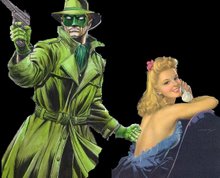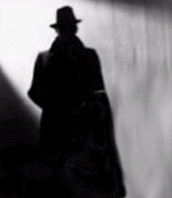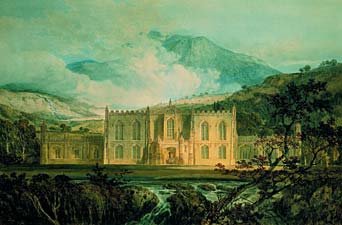 Henry Tremble, butler to Judge Johnes, has been dismissed for misconduct. Believing himself wronged, the butler has gone to remonstrate with his master, taking a gun with him. The Judge refuses to be intimidated, and Tremble loses his temper, pulling on the trigger...
Henry Tremble, butler to Judge Johnes, has been dismissed for misconduct. Believing himself wronged, the butler has gone to remonstrate with his master, taking a gun with him. The Judge refuses to be intimidated, and Tremble loses his temper, pulling on the trigger...It's all over very quickly. The Judge catches the full force of the blast. As Henry looks down at the bloodied body by his feet, there can be no doubt that he is dead. He won't be hiring Henry again. In fact, no-one will be hiring him. Only the hangman will want to see him. If the villagers do not slay him first, for the old judge was a popular man.
Then, suddenly, unbidden, a thought occurs to him. A mad, insane thought. If he can c.over up the death for a few days, long enough for him to get on a boat to American in Liverpool. Not that long ago, a poacher slew one of the gamekeepers at Trawsgoed, Lord Lisburne's mansion over the mountains, and he was able to get to Liverpool and escape.
But then he realises someone must have heard his shot. Someone will get to the Post Ofiice and send a telegram. Once a warrant's out for his arrest, he will be as good as dead. He has to cover up the evidence, has to stop them.
And that's when it comes to him. He may be able to get away with it if he kills all the people in the mansion. He laughs, re-loads and advances up the stairs, with cat-like tread. Turning on the landing, he throws open the door of Mrs. Cookham, the Judge's widowed daughter. She's changing for bed, her maid beside her. Tremble discharges one barrel at her, but the maid throws herself in front of her mistress. The second shot fells Mrs. Cookham, and Tremble moves on to the bedroom of Miss Johnes, the younger daughter.
Only to find it empty. In his state of mind, he realises he had forgotten that she had gone out to a dance with friends. She and they will be back, and one of them is bound to raise the alarm. The gallows return to his mind. As he feels to his cottage, he hears the barking of the house dogs. He shoots them, using up all but one of his bullets. That one he uses on himself.
When Miss Johnes returns from her dance, she finds the whole grisly tableau just as Tremble had left it, except for her sister, who proves weak but alive.There can be no doubt about Tremble, however, he is very dead indeed.
Judge Johnes is buried in great state in Caio churchyard, mourned through all Wales. At the National Eisteddfod in Wrexham, the field is silent in his memory.
And what of Henry Tremble, the Bulter who did it? He, too, is laid in Caio cemetery. But not to rest. The night after his burial, his coffin is dug
 up and thrown into the roadway. It is buried again, and once more it is dug up. At last, it is laid in another churchyard, in secret, although at last it returns to Caio to lie undisturbed.
up and thrown into the roadway. It is buried again, and once more it is dug up. At last, it is laid in another churchyard, in secret, although at last it returns to Caio to lie undisturbed.And Tremble? By he sought to gain his heart's desire by stepping into the shadows. He gained only death and infamy. He will remain forever in the shadows. His body may lie at rest at last, but what of his spirit?







No comments:
Post a Comment